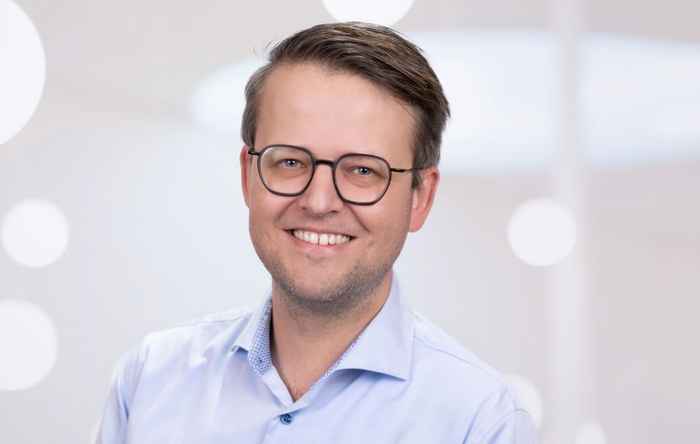‘Through this Ukrainian collaboration, we are also looking into the direct threat of war.’
Ukrainian researcher Viacheslav Dziundziuk joins Bert Bakker’s Vidi project about threat perception
21 February 2024

A tangible threat
Bakker is pleased with the way his research is expanding and gaining depth: ‘Until now, we have mainly looked at mediatised threats in the Netherlands and the US – threats that are less “tangible”. The war in Ukraine is a very different and direct threat. We will also need to look at some more indirect threats in this context, including disinformation, corruption and the state of democracy.’ The team will investigate the ways in which people deal with all these different types of threats.
We have no idea how things will develop in Ukraine over the next two years.
A collaboration that is both exciting and scary
The Dutch Research Council (NWO), the organisation that awards the Vidi grants, has entered into a collaboration with the National Research Foundation of Ukraine (NRFU). This is how contact with Dziundziuk was established. He works for the National University of Kharkiv, though he has left the city for safety reasons. While he does not have to fight in the army, he is also not free to leave the country. ‘This collaboration is both exciting and scary’, Bakker admits. ‘In principle, we will be collaborating for the next two years. At the same time, we have no idea how things will develop in Ukraine over this period.’
Going to Ukraine for lab tests is too dangerous
In the Netherlands and the US, the project consists of two types of research: questionnaires and lab tests for measuring physical reactions. Bakker will not be carrying out these lab tests in Ukraine. ‘That is still far too dangerous right now.’ He is not the only one who thinks so: ‘My wife has made it very clear she would not approve of me going there for my research.’
I hope this will be the start of a deeper relationship between our two universities.
A wonderful pilot
If the threat in Ukraine recedes over the coming years, the research team may still be able to carry out lab tests and more in-depth and broader research in the country. For now, Bakker sees the two-year collaboration as a wonderful pilot. ‘I hope this will be the start of a deeper relationship between the UvA and the National University of Kharkiv in the social and behavioural sciences domain.